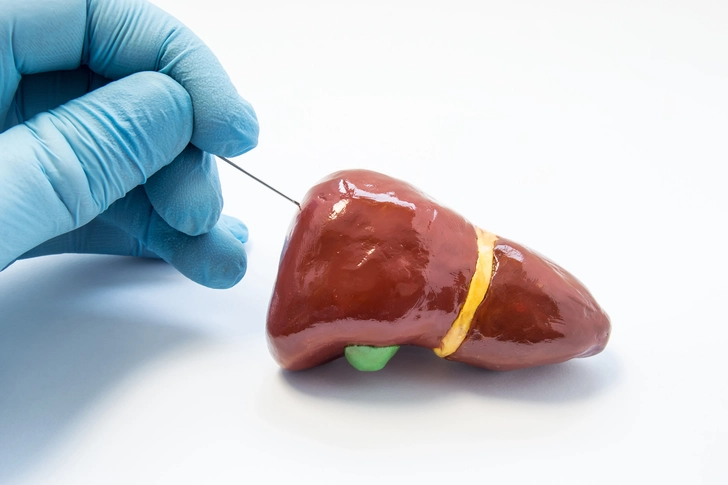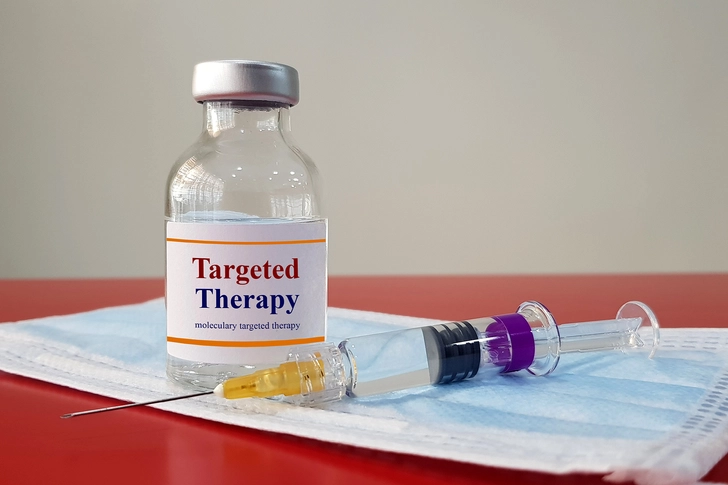- Overview
- Causes, Risks & Prevention
- Signs & Symptoms
- Tests & Diagnosis
- Your Lung Cancer Care Team
- Treatment
- Living With
- Remission & Recurrence
- Support & Resources
- Appointment Prep
- View Full Guide
What Is Stage IV NSCLC?


When NSCLC Spreads
Non-small cell lung cancer (NSCLC) can spread to other parts of the body, including the liver. This is called metastasis. When NSCLC spreads to the liver, it's still considered lung cancer, not liver cancer. The cancer cells in the liver are actually lung cancer cells. This spread typically occurs through the bloodstream. You may not be able to cure it, but treatments can ease your symptoms and make you more comfortable.

Symptoms to Watch For
When NSCLC spreads to the liver, you may experience various symptoms. These can include pain in the upper right part of your abdomen, a feeling of fullness under your ribs, nausea, loss of appetite, unexplained weight loss, and fatigue. Your skin or the whites of your eyes might turn yellow, a condition called jaundice.

How It's Diagnosed
To diagnose liver metastasis, your doctor may use several tests. These can include blood tests to check liver function, imaging tests, such as CT scans, MRIs, or PET scans, to visualize the liver, and sometimes a liver biopsy. During a biopsy, a small sample of liver tissue is removed and examined under a microscope. Your doctor will explain which tests are necessary in your case and what the results mean for your overall treatment plan.

Understanding Your Treatment Options
Treatment for NSCLC that has spread to the liver aims to control the cancer's growth and manage symptoms. Options may include chemotherapy, targeted therapy, or immunotherapy. In some cases, radiation therapy might be used to shrink tumors in the liver. Your doctor will consider factors such as how much cancer is in the liver, your overall health, and previous treatments when deciding on the best approach.

Monitoring Your Progress
Your doctor will closely monitor how your cancer responds to treatment. This may involve regular blood tests to check liver function and imaging scans to assess tumor size and spread. You'll have frequent checkups to discuss your progress and any new or changing symptoms. Keep a symptom diary to share with your doctor during these visits. This information helps your health care team adjust your treatment plan as needed.

How to Manage Symptoms
Your doctor may prescribe medications to help with pain, nausea, or other symptoms. You may also get treatments to help you breathe easier, including oxygen therapy or a program called pulmonary rehabilitation that teaches you breathing methods to help you take in more oxygen with each breath. If you have lost your appetite, try eating several smaller meals throughout the day instead of three big ones.

Emotional and Mental Health
Talking with others who understand what you're going through can be very helpful. Many hospitals have support groups for people with advanced cancer. You can also speak with a psychologist, therapist, or another member of your medical team to help you manage your emotions. Friends and family can be a source of help, too.
PHOTO CREDITS:
Slide 1 - Jo Panuwat D / Shutterstock
Slide 2 - New Africa / Shutterstock
Slide 3 - Shidlovski / Shutterstock
Slide 4 - joel bubble ben / Shutterstock
Slide 5 - Nuttapong punna / Shutterstock
Slide 6 - Face Stock / Shutterstock
Slide 7 - PeopleImages.com - Yuri A / Shutterstock
SOURCES:
American Cancer Society: "Non-Small Cell Lung Cancer Signs and Symptoms," "Tests for Non-Small Cell Lung Cancer."
Annals of Palliative Medicine: "Palliative care for patients with locally advanced and metastatic non-small cell lung cancer."
Canadian Cancer Society: "Liver metastases."
Cancer Care: "Ask CancerCare."
Cancer Research UK: "Symptoms of advanced cancer."
Cancer Support Community: "Treatments for Advanced and Metastatic Lung Cancer."
Contemporary Oncology: "Palliative care in patients with lung cancer."
Mayo Clinic: "Lung Cancer: Diagnosis & Treatment."
National Comprehensive Cancer Network: "Guidelines for Patients: Lung Cancer -- Non-Small Cell Lung Cancer."
Radiology Info: "Positron Emission Tomography -- Computed Tomography (PET/CT)."
UpToDate: "Patient education: Non-small cell lung cancer treatment; stage IV cancer (Beyond the Basics)."